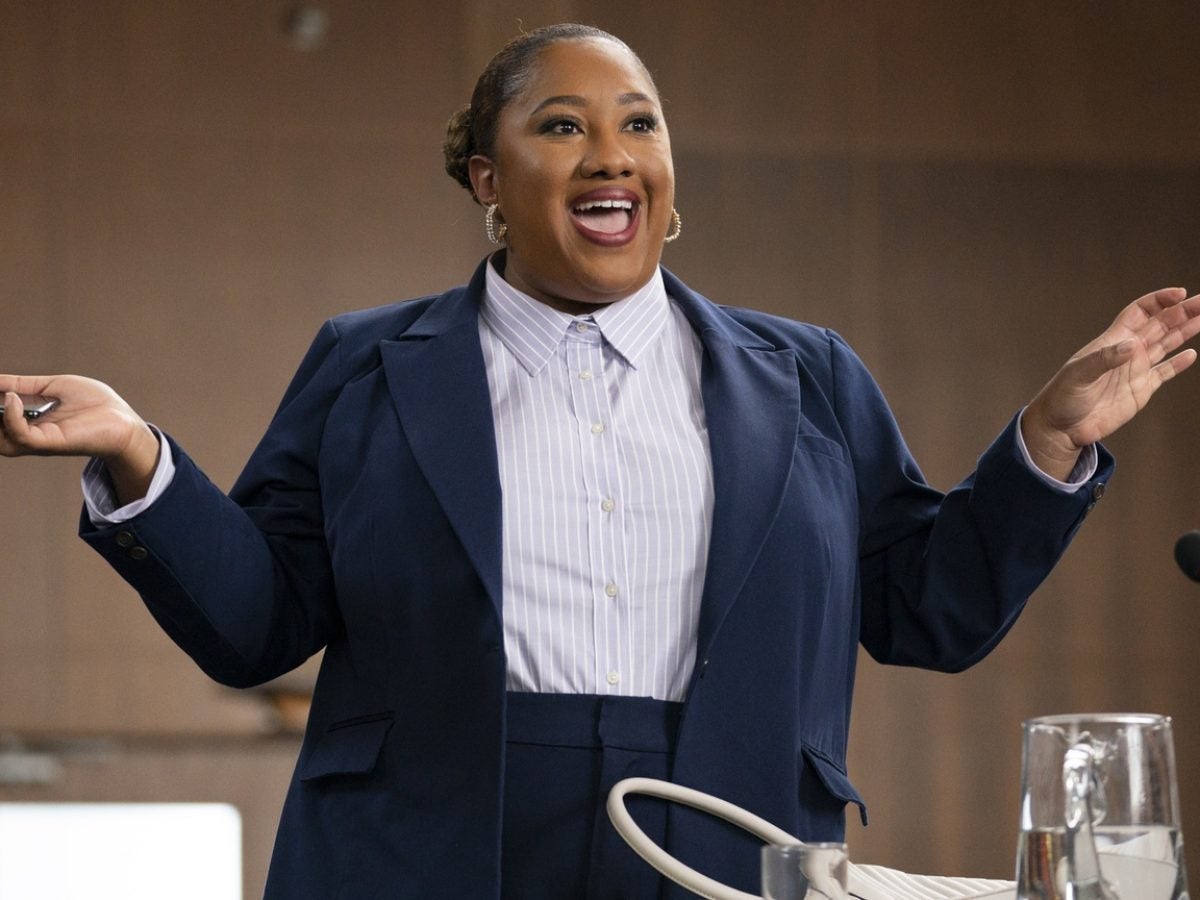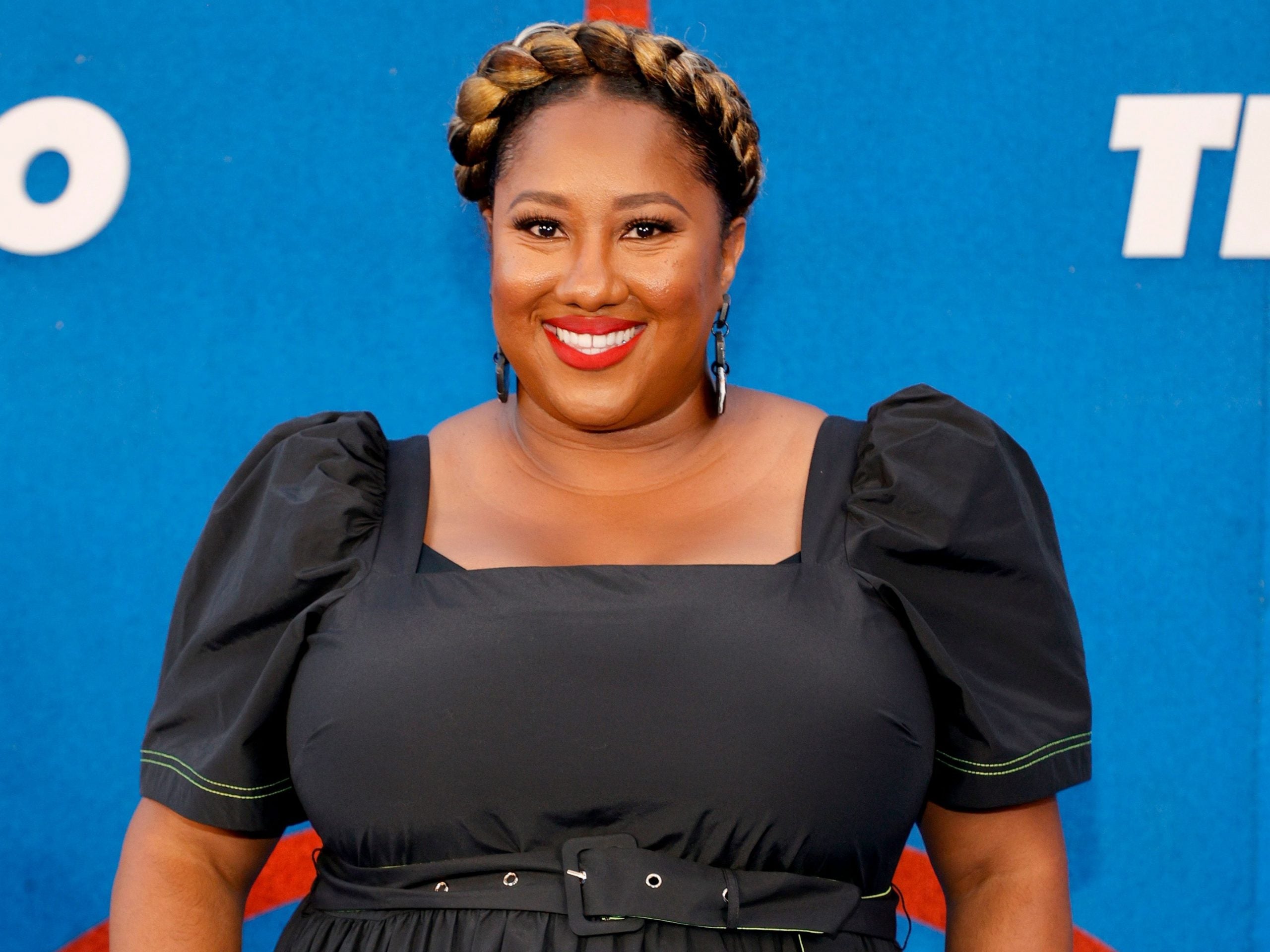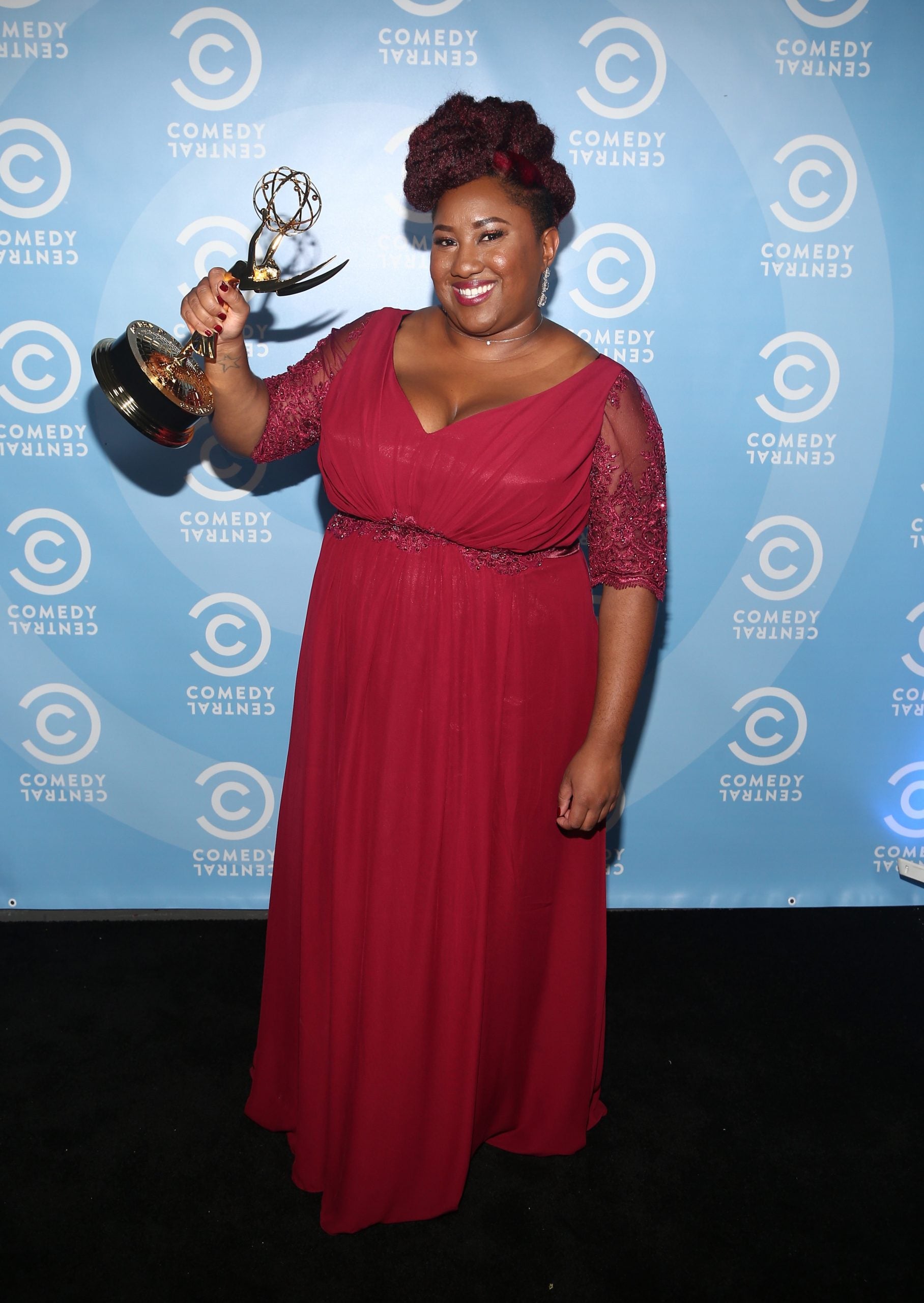
“It’s a truth universally acknowledged that the moment one area of your life starts going okay, another falls spectacularly to pieces.”
Screenwriter, producer and actress Ashley Nicole Black, who’s an unabashed lover of romantic comedies, can relate to this classic line from Bridget Jones’s Diary except for that last bit. This award-winning multi-hyphenate is a double Emmy nominee for her work writing two variety shows helmed by Black women, Robin Thede’s A Black Lady Sketch Show and Amber Ruffin’s late night series The Amber Ruffin Show, and she could walk home a winner when the 2021 Emmys are awarded on Sept. 11, 12 and 19.
While the awards are a few weeks away, Black is busy producing and writing the second season of the critical darling Ted Lasso. Much like the series’s effusive lead character, Black is radically optimist about one thing that makes her a star in any writer’s room: the power of storytelling. But how she uses it in her work makes her a true Hollywood gem.

“My father is a minister, my mom works in nonprofit, and they are hands-on-the-ground doing amazing things. So for me, to be their child, I had to ask myself: ‘All right, what am I doing?’” Black shared over Zoom last month. “I really do think that storytelling has the power—actually studies have been done that when people follow a protagonist, they practice empathy because you put yourself in that character’s shoes and imagine what it is to live through this experience. I do think that telling stories about diverse groups of people helps others practice empathy that they can hopefully take into their real lives.”
Another entry point for authentic storytelling according to Black: working with creators who respect your varied experiences.
“When I do WGA things or go on Script Notes and talk to leaders in the industry, what I want people to do is what [Ted Lasso creators] Jason Sudeikis and Bill Lawrence do, which is be curious and ask questions,” says the 2017 Emmy winning writer of Full Frontal With Samantha Bee Presents Not The White House Correspondents’ Dinner. “Instead of being like, ‘No, I don’t know what that is’—which some show runners do have that tendency—they can make it work by asking: ‘Oh, tell me more about that. I didn’t know that, how does that work? Well, how do you think this character would respond?'”

The L.A. native gives an example of how being asked to be open and honest about her life shaped Ted Lasso’s nod to Black Lives Matter with their recent “Do the Right-est Thing” episode, centering Nigerian player Sam Obisanya standing up to the big corporations polluting his home country.
“One of the storylines of my episode really came out of Jason asking me, ‘You’re a young Black person in the public eye. What does it feel like when you speak up on these things, and how people respond to you and how it feels?'”
Black continues: “For me, it really was about remembering what it felt like to be 21, because that is really young, and having your consciousness raising at that age. Most of us got to do that in the comfortable environment of college. These young men are on the world stage at such a young age, and when I was doing research to join the show and watching documentaries, that was something that I was really struck by, is how young they are. They’re so young and they’re given so much money and just kind of pushed out on the world stage, and it’s like, ‘Good luck.’ So it was a combination of wanting to honor that Sam’s character had said he cares about the environment, but also explore what it’s like to have that big of a microphone when you’re that young and you’re just starting to figure it out.”
For Black, whether she’s working with writers as melanated as the Black Lady “Courtroom Kiki” or as diverse as the locker room of AFC Richmond, her microphone is definitely her pen.